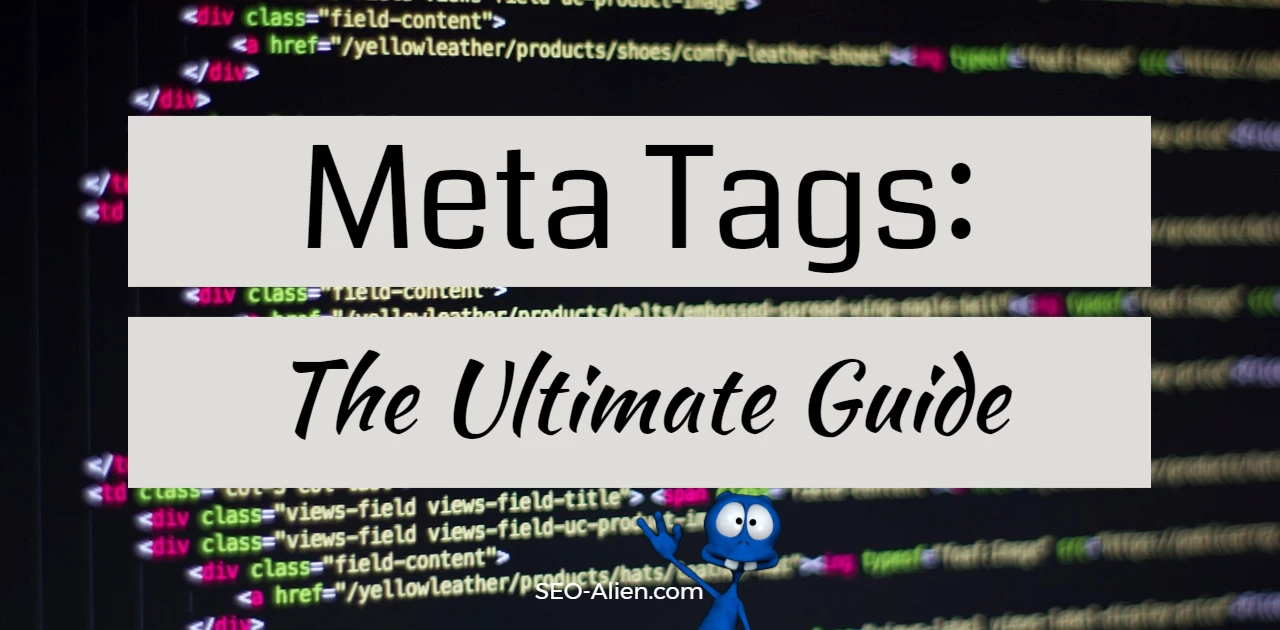Are you unsure about how Meta tags can help optimize your website for search engines? Are you interested in understanding the potential of these powerful tools to ensure that your website is being seen and indexed properly? Then this guide is perfect for you!
As an essential tool in any marketer’s arsenal, meta tags are a great way to unlock the full potential of your online presence.

Here we will explore why meta tags are important, the different types available, and best practices when implementing them on your webpages. Put simply, mastering Meta tags is vital if you want to maximize SEO success—so read on to learn more!
What Are Meta Tags and How Do They Help SEO
Meta tags are HTML elements that provide information about the content on a webpage. These tags help search engines understand the context of a page better and are used as an SEO tool to give pages an edge in SERP rankings. Meta tags can include titles, descriptions, and keywords related to the content on the page. For example, if someone is searching for 'app designs', a web developer can add meta tags with terms like 'apple' and 'Android' to boost the visibility of the page in search engine results. Search engines also use Meta tags to determine how visible and relevant a page is in its indexing process. By including Meta Tags in website design, businesses can ensure their content is easily found by users who are searching for relevant topics online.
Understanding the Different Types of Meta Tags
Meta tags are a crucial part of having a well-organized website. They provide search engines with key information about the different pages on your site, aiding them in discovering and categorizing your content. There are different types of meta tags that you should be aware of as you create different pages for your website, including:
-
- Title Tags: Title tags are the most important meta tag, as they appear in search engine results pages (SERPs) as the clickable headline for a given result. They should be concise and accurately describe the content of the page.
- Meta Descriptions: Meta descriptions provide a brief summary of the content on a page and appear below the title tag in SERPs. They should be unique to each page and accurately reflect its contents.
- Robots Meta Tags: Robots meta tags tell search engine crawlers whether they should index a page or not, and if they should follow any links on it.
- Canonical Tags: Canonical tags help to prevent duplicate content issues by specifying which version of a URL is considered authoritative.
- Open Graph Tags: Open graph tags control how URLs are displayed when shared on social media platforms such as Facebook and Twitter.
- Twitter Cards: Twitter cards allow webpages to attach rich media experiences to tweets that link back to their content.
Mastering the Art of Writing Powerful Meta Descriptions
It's no secret that powerful meta descriptions can help your website stand out in search engine results, increase traffic and make a big impact on potential customers. But it takes finesse to craft them effectively. Mastering the art of writing powerful meta descriptions requires knowing what information to include, understanding how Google reads them and using the right tone of voice for your audience. From concise summaries to effective calls to action, powerful meta descriptions take skill – but the effort can pay off with an SEO win and higher click-through rates.
Making Sure Your Title Tags Are Optimized for Search Engines
Ensuring that your title tags are optimized for search engines is a crucial part of any SEO strategy. Title tags tell search engine crawlers what a page is all about, and can help boost your website's rankings in search results. When crafting title tags, make sure they accurately describe the content on a particular webpage; use relevant keywords and avoid generic phrases or attempts to stuff too many keywords in the title tag. Additionally, title tags should be kept below 60 characters, as any text beyond this may not be visible to users in the SERPs (Search Engine Result Pages). Crafting title tags with care will go a long way towards increasing your website's visibility on search engines.
Crafting the Perfect Open Graph Meta Tag to Improve Social Sharing
Crafting the perfect open graph meta tag can be a powerful tool for improving your website’s social sharing. Leveraging open graph meta tags isn't just about giving information to search engines, but allows you to give context to any content posted on a website. By creating separate open graph meta tags for different page types, you can provide clear descriptions and images for each URL shared by visitors. Crafting an open graph meta tag helps ensure that the correct title, description, and image are displayed when visitors share the link on their social network, which increases interaction and engagement with your brand.
Utilizing Structured Data Markup For Enhanced Discovery on Search Engines
Implementing structured data markup into a website can help enhance discovery on search engines such as Google. Structured data markup tags provide search engines with additional information about the webpage, such as the type of content and other relevant details. This type of structured data enhances discoverability and can rank websites or webpages higher in search engine results.
It is important to note structured data eliminates any ambiguity associated with the webpage, enabling search engines to accurately index pages based on their content. As structured data markup continues to be a priority for search engine algorithms, it is essential for businesses and website owners alike to maximize their structured data usage for better rankings and enhanced discoverability.
It's essential to take the time to optimize your meta tags if you want to ensure maximum discoverability online. Meta tags can play a vital role in SEO by helping search engines understand more context behind your content and pages. Taking the time to understand the different types of meta tags, craft effective titles, descriptions, and open graph meta tags is key in optimizing your presence online. Additionally utilizing schema markup to designate specific elements on the page will only benefit you when it comes to showing up in search.
Looking for a tool to help create the perfect meta tag description? Check out Jasper.ai– not only will Jasper.ai help you create powerful metadata, it is designed for professionals seeking an easy way to complete these tasks (and many more) quickly. By utilizing meta tags effectively you can drive targeted traffic and establish yourself as an expert in your field.
Sources
About the Author:
The SEO-Alien is a project started in 2009 regarding all things online marketing. The site started out more of a diary of predictions, suggestions and references to things I frequently used for online marketing... before social media marketing was even an option.
I hope you find the information and tools presented here useful and something worth sharing with others.
If there is anything else about online marketing or any online advertising strategy you think would be helpful, please let me know.




